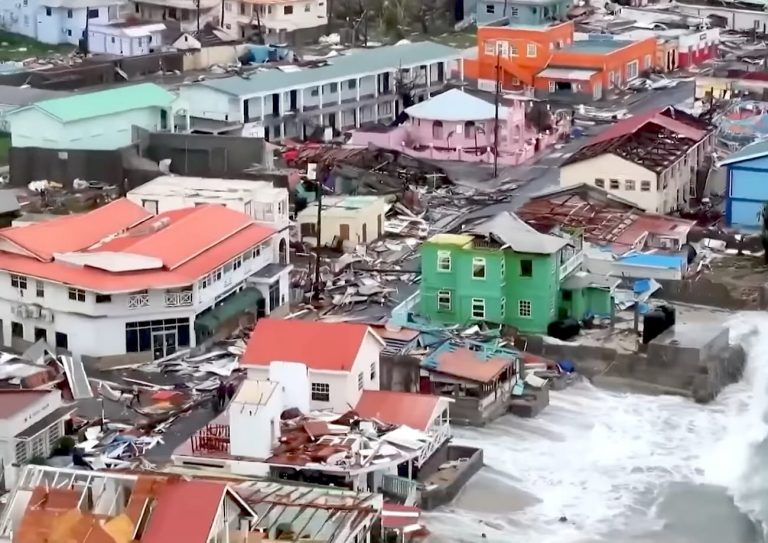
You may have read that Hurricane Beryl, which hit the Caribbean last week, was a “record-breaking superstorm.” [emphasis, links added]
But in fact, it's not. In fact, it was nothing more than the kind of hurricanes that have regularly struck the Caribbean since ancient times.
Only in the past 30 years or so have we been able to comprehensively monitor Atlantic hurricanes with the help of satellites. During this period, 21 other Category 5 hurricanes occurred, most of which were much more powerful than Beryl.
Of course, there's much more that happened before the satellite era but has never been observed or measured at peak intensity.
Most people don't appreciate this The strongest hurricane-force winds never travel more than a few miles from the center, so the chance of recording them in the past is next to zero.
Five people were reported to have died in the Caribbean during Beryl. The sad fact is that when a hurricane strikes, people living on these islands have nowhere to go to safety.
By comparison, Hurricane Mitch in 1998 killed more than 11,000 people.
The storm inflicted heavy losses on the British fleet during a critical period of the American Revolution. Three other hurricanes that same year each claimed more than 1,000 lives.
natural part of life
People in the Caribbean accept hurricanes as a natural part of life.
When hurricanes hit Caribbean islands, the damage is enormous: ecology is thrown out of normal cycles, terrain changes, agriculture regresses, economies and industries take a hit, societies pull together or fall apart, infrastructure is destroyed, and prevention must be taken measure.
The only difference now is we have 24/7 media coverage.
BBC inevitably takes the lead in trying to link Beryl to climate change. Maybe they should read what real hurricane experts have to say about the matter, like the National Oceanic and Atmospheric Administration (NOAA):

Here are the actual numbers of major hurricanes around the world:

But why let unpleasant facts get in the way of a political agenda?
Food prices are rising again. Why? Of course it’s climate change!
Yes, we get the same climate scare every year! This time it is Financial Times The organization claims climate change is “reducing crop yields, squeezing supplies and driving up prices”.
It went on to report:
A third of UK food price rises in 2023 will be attributed to climate change, according to the Energy and Climate Intelligence Agency think tank.
“Climate change has a significant impact on global food prices,” said Frederic Neumann, chief Asia economist at HSBC. “It's easy to think that individual events are isolated, but we're just seeing a series of unusual events and disruptions that, of course, are exacerbating the effects of climate change.”
Neumann believes such recurring events could lead to “permanent impacts on food supply capabilities.” [Increased food prices] Once thought to be temporary, it is becoming a source of sustained inflationary pressure.
within the globe, Annual food inflation could rise by up to 3.2 percentage points every year for the next ten years or so due to higher temperatureAccording to a recent study by the European Central Bank and the Potsdam Institute for Climate Impact Research. (Bold, link added)
Meanwhile, back in the real world, Agricultural output continued to grow compared with the same period last year:

Cereal production is expected to hit another record high this year:

The report’s authors, the Energy and Climate Intelligence Unit (ECIU), are nothing more than a climate lobby group pretending to provide factual analysis.
ECIU was founded by ex-BBC man Richard Black and is heavily funded by the Green Blob, particularly the notorious European Climate Foundation.
Its board is made up of the usual broadside officials and others who have excelled in the climate scare.
Nothing produced by this organization can be trusted.
Apparently the latest panic was triggered by last year's poor Mediterranean olive harvest. This would certainly be a disaster for the Islington group, but not a disaster for the rest of us.

The only thing driving up food prices is the continued high price of oil and gas, the expected outcome of the war on fossil fuels waged by Western governments.
This affects farmers’ operating costs, transportation and transport, and the price of fertilizers.
If any of these lies were true, do you really believe that these governments would want to rewild large areas of the planet while trying to destroy their dairy farming industries?
Paul Homewood is a former accountant who blogs about climate change at Not Many People Know This.
Read more Conservative Women
